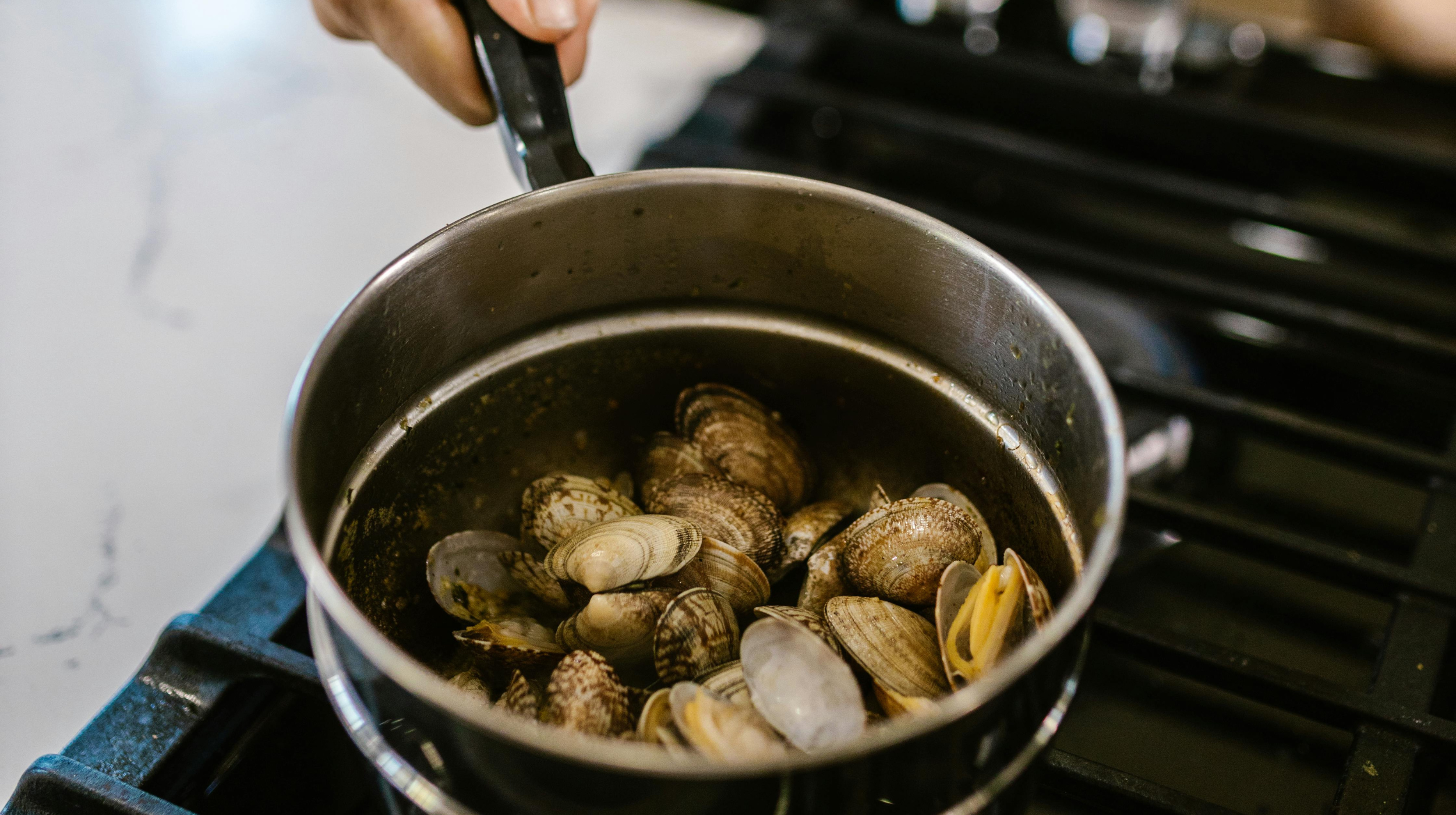Here’s How to Address Low Iron in Pregnancy
Low iron in pregnancy is extremely common and can impact your energy levels on a daily basis. Since your need for bioavailable iron rises in pregnancy, it’s important to prioritize foods, supplements, and lifestyle habits that boost iron levels.
Table of Contents
Iron is one of the most important nutrients to consider for pregnancy nutrition. Your baby’s development depends on it since iron transports oxygen and produces red blood cells. But keeping tabs on your iron levels isn’t just good for your baby, it’s good for you, too. Iron-rich foods and intentional supplements can curb mood swings, fatigue, and nausea during pregnancy.
What Causes Low Iron in Pregnancy?
Most women begin pregnancy with low iron (or, undiagnosed anemia).
The Recommended Daily Allowance (RDA) of iron for fertility-aged women is 18 mg per day, which, in my experience, just isn’t enough to sustain reproductive health. Other countries have much higher recommendations, and my clients tend to thrive best with at least twice this amount of daily iron.
In pregnancy, red blood cells turnover at a quicker rate, so iron is used up faster. The Recommended Daily Allowance for pregnancy is 27 mg, so it’s higher but not high enough to sustain the extra needs of your body (and your growing baby).
One of the big reasons I find low iron to be so common is the American diet. Leafy greens are the most common recommendation for iron consumption, but these only contain non-heme iron, which is absorbed at much lower rates than heme iron (found in animal-based foods). The Highest concentrations of bioavailable iron can be found in clams, oysters, and grass-fed beef liver but these foods aren’t part of daily meals.
Are You Absorbing Enough Iron?
Eating and absorbing iron are two different things. Many foods can interfere with iron absorption, like dairy (for calcium), polyphenols, coffee, and tea, ultimately lowering the effects of iron-rich foods. Try to eat or supplement your iron for at least an hour before consuming these foods.
Similarly, some nutrients enhance iron absorption. Vitamin C makes iron more bioavailable to the body, which is especially helpful if you’re anemic. Eat iron-rich foods alongside orange juice, kiwi fruit, or other foods high in vitamin C.
Since iron is critical for pregnancy and fetal development I recommend testing your iron with a trusted practitioner before, during, and after pregnancy. This gives us an accurate full-picture view of how your body absorbs and uses iron. If possible, prioritize iron-rich foods before iron supplements, since this is easier on digestion.
Signs of Low Iron in Pregnancy
Most women expect a little discomfort during pregnancy. You’ll probably experience new symptoms that simply come with growing a human. That said, symptoms are often a window to the inner workings of our bodies. They’re not always normal. Fatigue, nausea, weakness, and feeling short of breath can point to low iron in pregnancy.
Fatigue
Nausea and morning sickness
Irregular heartbeat
Weakness and dizziness
Feeling short of breath
Cramps
Pale skin
Low blood pressure
Thyroid issues
Cold extremities or feeling cold
Depression and mood swings
How to Resolve Low Iron in Pregnancy with Nutrition
Boosting iron levels takes more than the right supplements. You’ll need to combine iron-rich foods, lifestyle practices, and supplements for the best results. And, even if you’re using supplements, assume your meals will do most of the grunt work to restore your iron levels.
Best Foods for Low Iron in Pregnancy
Animal foods contain much higher levels of bioavailable iron than plant sources. Not to mention, the polyphenols found in spinach and dark chocolate (two foods high in iron) could cancel out some absorption. My favorite foods for low iron in pregnancy are animal-based, but you can combine a variety of plants and animal proteins for the best results.
Grass-Fed Beef Liver
If you don’t like the idea of eating beef liver plain, try an ancestral ground beef blend.
Clams
Wild caught, always
Salmon
This is an easy seafood to eat if you’re worried about bacteria contamination. Just make sure it’s cooked to a safe temperature.
Ground Beef
Homemade burgers, meatballs, meatloaf, and beef stew are all welcome in the pregnancy diet.
Cooked Spinach
Just be sure this isn’t your only form of iron since the polyphenols can interfere with absorption.
Dark Chocolate
Try dairy-free chocolate so the calcium doesn’t interfere with your iron intake.
Broccoli
Roasting or cooking your broccoli can increase available iron.
Blackstrap Molasses
This is heavily caramelized molasses that’s packed with vitamins and minerals, including iron.
Alfalfa Tea
Visit your local herbalist to create your own alfalfa tea blend.
Best Supplements for Low Iron in Pregnancy
Yellow Dock Root Herb Tincture
This herb is high in iron and can sometimes replace an iron supplement.
Beef Liver Capsules
If your iron isn’t too low, beef liver supplements are a good substitute for iron supplements.
Iron Bump from FullWell
I love FulWell’s prenatal vitamins and often recommend their iron supplement to pregnant moms.
Cell Salts
Calcium Phos can help with anemia and improve overall nutrient absorption.
Best Lifestyle Practices for Low Iron in Pregnancy
Cook with Cast Iron
This is an easy way to increase daily exposure to iron.
Consume Vitamin C
I recommend an adrenal cocktail with your iron supplement to increase absorption.
Lower Stress Levels
High stress can quickly burn through your mineral stores.
A Comprehensive Plan to Resolve Low Iron in Pregnancy
If you have low iron in pregnancy, I know you’re feeling the impact. Whether it’s dizziness and fatigue or emotional unrest, low iron can really affect your quality of life. Right now, let’s focus on getting your iron levels under control so you can breathe a sigh of relief now and build your body up for postpartum later.
YOU MIGHT ALSO LIKE...










